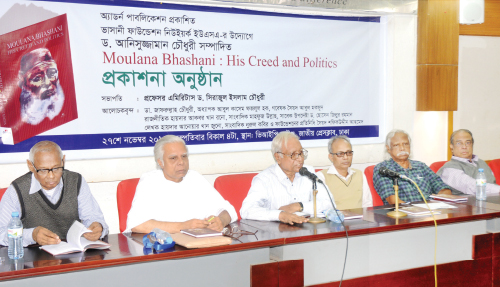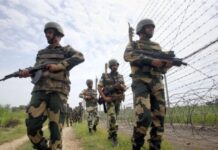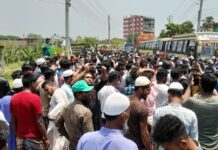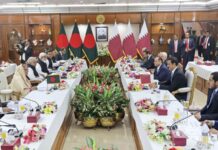The history of Bangladesh is incomplete without elaborate discussions on Maulana Abdul Hamid Khan Bhashani, who was lifelong crusader for the rights of the oppressed, said authors of books written on him, besides academics, at a book launching ceremony on Thursday. Bhashani’s work in his relentless struggle against imperialism, feudalism and for an exploitation-free secular and democratic society will be a source of inspiration for oppressed people around the world if it was collected and circulated properly, they said. Maulana Bhashani Foundation USA and Adorn Publications jointly organised the launching ceremony of book Moulana Bhashani: His Creed and Politics, at the National Press Club. Dhaka University professor emeritus Serajul Islam Choudhury said Bhashani was always against capitalism in exception to other nationalist leaders of that time. He never changed his position like other contemporary politicians. It is important that books on Bhashani in English are available to inform the world about his ideals and work. Columnist Syed Abul Maksud said no historian will be able to write an accurate history of the independence of the country deducting Bhashani as he was an inseparable part of the country’s struggle for liberation. Like Ernesto Che Guevara, over the next 20 years Bhashani’s creed will be a source of inspiration in the struggle of the oppressed people of Asia, Africa, Latin America and other areas. The incumbent government has dropped several chapters on Bhashani from textbooks, said journalist Mahfuz Ullah, adding, and ‘this is not abnormal as the current ruling party does not acknowledge Bhashani’s contribution in the independence war because of their narrow-mindedness.’ Academic Abul Kashem Fazlul Haq said Bhashani was a charismatic leader and extra ordinary orator and that his work and contribution should be acknowledged. Gonoshasthaya Kendra founder and freedom fighter Zafrullah Chowdhury said Awami League leaders considers the country’s founding president Sheikh Mujibur Rahman as the single leader of the country’s struggle for independence, which is unfortunate. We need a complete and accurate biography of Bhashani from which the new generation will come to know that Bangladesh was not liberated by one or two leaders. New Age editor Nurul Kabir moderated the programme. Maksud and Mahfuz Ullah were both critical of certain essays in the book. Maksud said the essays portrayed Bhasani in a negative light while Mahfuz said he did not want to read about Sheikh Mujibur Rahman in a title on Bhashani. Cultural activist Haider Anwar Khan Jhuno, chief executive officer of Adorn Publication Syed Zakir Hossain and Maulana Bhashani Foundation’s Shafikuddin Ahmed also spoke at the book launching. Bhashani died on November 17, 1976 leaving behind a checkered political life of struggle for the cause of the downtrodden. He was born in 1880. Bhashani founded Awami League in 1949 and later quit it and founded left-leaning National Awami Party. He led the 1969 historic mass upsurge that eventually inspired the nation to clinch independence. He led the historic Farakka March in 1976 against India’s unilateral Ganges water withdrawals using the controversial Farakka Barrage it built not far from the Bangladesh border.
Source: New Age










